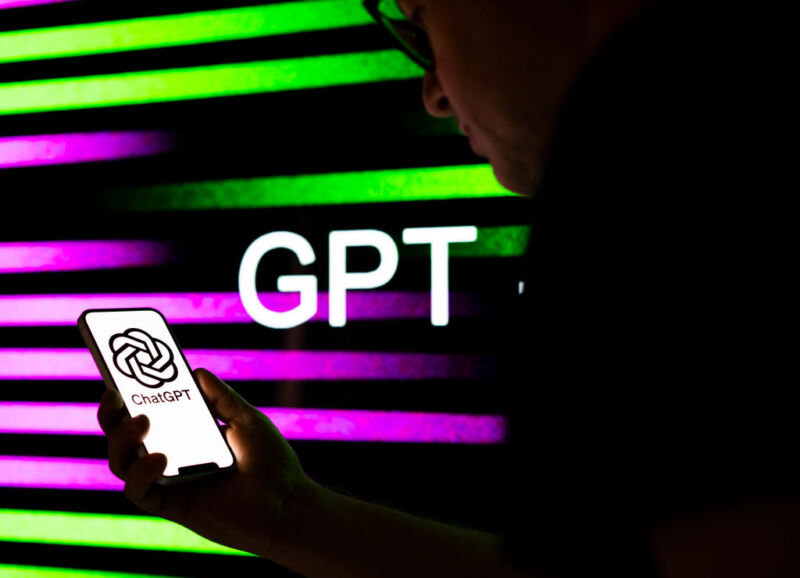
OpenAI’s immensely popular ChatGPT has started losing users for the first time, The Washington Post reported today.
According to data firm Similarweb, ChatGPT’s mobile and desktop traffic worldwide decreased by nearly 10 percent from May to June. Another data firm, Sensor Tower, reported that ChatGPT’s iPhone app downloads have been steadily dipping since they peaked in early June.
This, the Post suggested, could be a sign that consumer interest in chatbots and other AI tools is waning as tech companies heavily invest in AI product development.
Earlier this year, ChatGPT set a record for attracting the fastest-growing user base in history. Many tech companies—most prominently Google—immediately sought to replicate ChatGPT’s success, but Ars noted at that time that technology adoption rates have generally quickened over the past few decades. ChatGPT’s success may have been less about broad interest in chatbots and more about its novelty, which may now be wearing off.
As an example that ChatGPT may have simply benefited from increasing user adoption rates, this week, Meta launched a Twitter rival called Threads. Almost instantly, Threads—despite significant drawbacks in its design and ample privacy concerns—easily beat ChatGPT’s record as the fastest-growing consumer app. Where ChatGPT reached 100 million users in two months, Threads hit 70 million users in less than two days, CNBC reported. And Meta did that without depending on any flashy new AI features (in fact, Twitter has sued, alleging that Threads is just a Twitter copycat).
Whether a 10 percent decline in ChatGPT users over a single month in summer should worry tech companies going all in on chatbots is still unclear, though.
The Post suggested various reasons why ChatGPT might be experiencing user drop-off, including a theoretical dip in the chatbot’s quality as its popularity drove up costs to keep it running, and OpenAI attempted tweaks to lower expenses. It could even be meaningful that fewer students need to write academic papers in the summer months.
But ChatGPT has also dealt with user drama, including a recent lawsuit and an increasing number of companies urging employees not to use tools like ChatGPT out of privacy concerns, including Apple. OpenAI also started responding to user backlash and regulatory pressure by censoring harmful ChatGPT responses, which may have led some users to abandon the tool, possibly viewing it as less useful, less trustworthy, or simply less fun.
OpenAI did not immediately respond to Ars’ request for comment.
https://arstechnica.com/?p=1952173

